Do you think of yourself as a flexible, tolerant person? We’d all probably like to claim these fine virtues as our own, but lately our societies – and many people in them – seem to lack those attributes.
Unfortunately, the concepts of flexibility and tolerance have become distorted over time by the impersonal demands made by the markets, economic forces, and political platforms – so let’s define, redefine, and cleanse these two virtues as we reflect on their original forms.
Flexibility means being open to change when unexpected things happen. The Family Virtues Guide defines flexibility as a way to challenge ourselves, do things differently when needed, or improve ourselves when things get upsetting. When a test and difficulty shows up, it helps to have enough flexibility to deal with it positively and productively.
RELATED: The Virtues Basket: How to Be More Patient
The virtue of tolerance gives us a way to remain flexible when things are different from the way we want them to be. Intolerance can mean a simple lack of patience – making a fuss when things don’t match our expectations, when things are too hot, too cold, too noisy, or if something takes too long. But intolerance can also happen as a result of conscious or unconsciously-held prejudices, including expecting others to think, look, or behave just like us.
The Baha’i teachings – established by Baha’u’llah with the principles of tolerance and the unity of humankind – call for the elimination of all prejudices, whether racial, gender-related, national, or religious. In his writings, Baha’u’llah asked all people to “… observe tolerance and righteousness, which are two lights amidst the darkness of the world and two educators for the edification of mankind.”
Many contemporary thinkers have begun to adopt these Baha’i-inspired ideas. The author Catherine Malabou, in her book, Plasticity: The Promise of Explosion, describes one distorted idea of flexibility as a “passive receptivity with regard to externally imposed forms.” She views this passivity, driven by the market and social or political organizations, as unnatural, because it disregards the fundamental value of plasticity as “the reciprocal receiving and giving of form.” In combining neuroscience and philosophy Malabou explains that new discoveries in neural systems show that the brain is not the centralized command and control structure of the body, but rather the brain’s ability to remain flexible and “plastic” opens the possibility for the affirmation of free agency.
This means that the biological structures and the diverse kinds of human consciousness and behavior can engage in a process of continually modifying and transforming themselves “from one neural, conceptual or symbolic form into another, but also all forms, regimes, and systems are open and related to one another in this manner,” Malabou writes.
Accordingly, our behaviors can change our brains’ neurological paths – and new ways of thinking can change both our environment and society. Therefore, flexibility can help us become better and see difficulties as challenges, which leads to progress. As Linda Popov explains in The Family Virtues Guide, flexibility aids us to think of new and enhanced ways to do something, instead of doing things the same old way. This leads to positive change, and empowers us to learn and grow in the process both spiritually and mentally.
So when something surprises us, becomes a personal test, or creates difficulty, we should ask ourselves: What is this test trying to teach me? That question can help us identify the need to change – and want to change. When we decide to change little by little, and day by day replace old habits with new ones, Popov explains, we make progress.
In this way, tolerance can transform itself from passivity, hatred, impatience, and latent discrimination into a conscious process of understanding, acceptance, sympathizing, and openness to meet new people, absorb new ideas, and begin to understand those of different backgrounds. We can learn to embrace our differences and cultivate new ways to bring about inclusivity and unity. However, as Popov points out, “… tolerance does not mean being passive when someone is unjust or abusive.”
Practicing the virtues of flexibility and tolerance can conduce to the ability to put ourselves in someone else’s shoes, all while becoming more patient and forgiving. For example, culturally we might grow up with certain types of music, which our brain registers as normal. Then, in a gathering with a totally different culture, the music might sound unfamiliar to our ears. This uneasy experience can be a great learning opportunity, helping us understand and empathize how the music we cherish might sound to others. If we use these kinds of opportunities as tools to help us sympathize and put ourselves in someone else’s shoes – knowing how one might not love that music as much as we do – we can use flexibility and tolerance to become better and more accommodating people. We might even come up with diverse ideas to combine and mix different types of music, by making our gatherings more welcoming and cross-cultural rather than prejudiced and culturally one-sided.
This Virtues Basket video, by combining the concepts of tolerance and flexibility, offers a perspective on how to understand and practice these virtues in our daily lives.
Setareh Samandari Zargarpour has always been an artist at heart, after a 20-year career in Banking as Branch Manager for Wells Fargo and Chase she transitioned to working in Film. She had finished her Master of Arts in Political Science from CSUN and utilized it...
READ MORE

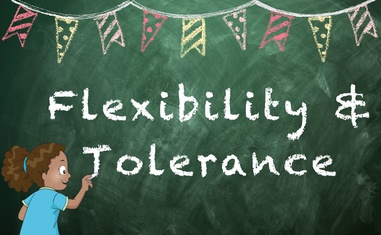

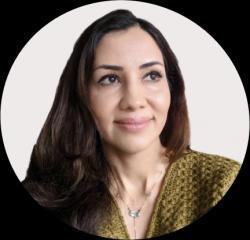
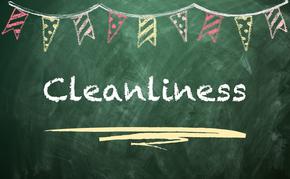
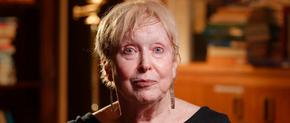
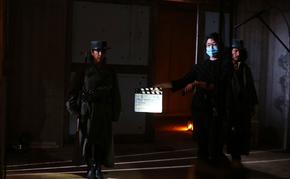
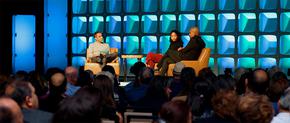









Comments
Sign in or create an account
Continue with Facebookor